
If Trump loses, he can set fire to the collective home of all Americans - U.S. politician Rashkin
In an interview with Espreso, U.S. politician and public figure Yuri Rashkin discussed the current situation in the U.S. ahead of the presidential election, including details of the voting procedure, the mood among Americans, Russia's influence on the election, and the concerns of key candidates, Kamala Harris and Donald Trump
Why has the U.S. presidential election been held on the first Tuesday of November for hundreds of years? In other countries, for example, it happens mostly on weekends.
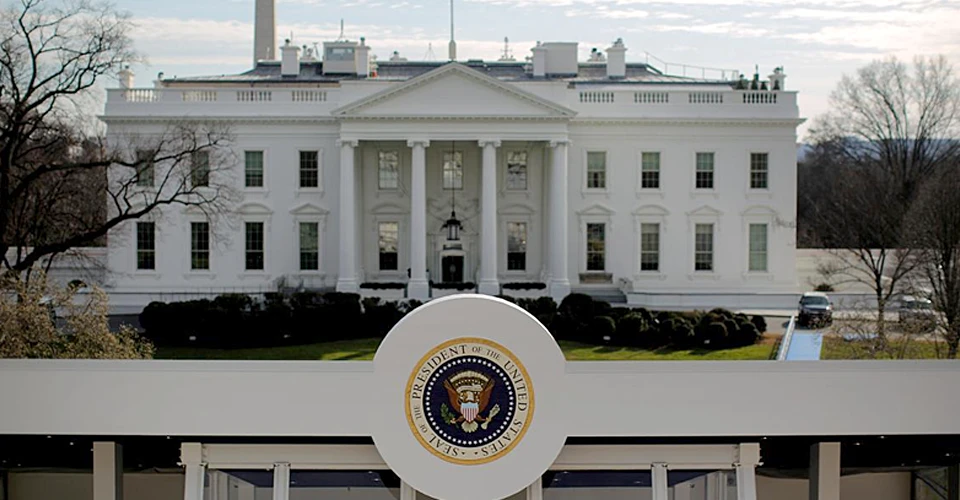
Photo: Reuters
It's an interesting question because it gives you an insight into the history of the United States and how our country has developed politically. We hold elections on Tuesday because of the law of 1845, when the election day was established for the whole country. Sunday was the first day of the Christian week, a day of prayer, and Monday was a market day. Tuesday was chosen because there were holidays in November before it. So you can see the Christian and agricultural influences here, because it was such a primary culture in America.
Now that we have less than 2% of the people in the United States related to farming, it seems outdated. There's a lot of talk about having a holiday on this day rather than an election day. But we are seeing early voting in many places. In some states you can vote before the official election date, in other states it's more difficult.
Of course, we can see that the Democratic Party wants to make elections easier, looking for ways to increase the number of active voters, because it makes sense politically. It also makes sense for the country. We want people to vote and participate in the democratic process. Democrats are better at this, so they are trying to get more people to vote.
At the same time, Republicans believe more in the idea that people who have some connection to the system, some interest or vested interest, should be more involved. You have to prove that you can vote in some more complicated way. Now, Chairman Johnson lost, and Donald Trump has demanded that everyone in the United States re-register as a voter and prove that they are a U.S. citizen. This is a very consistent practice, which is reducing the number of people who come to the polls. This is how it is unfolding now in the country.
Some people consider the American election system to be perhaps the most democratic in the world. Could you explain what happens during the presidential election on the first Tuesday of November from the moment an ordinary American citizen comes to the polling station or votes online until the winners are announced?
Elections are a very exciting and interesting process. Before voting, you determine where your polling station will be according to your place of registration. Sometimes, in some places, you can't register on election day. For example, here in Wisconsin, you can do it the same day, but it's an extra hassle before the election. I have a friend who moved to another state and wanted to take her driver's license to register because she had to go to the polling place and show her license. This used to be considered unconstitutional, but now the highest court has decided that the voter has to prove that you are you. In the United States, everyone has a driver's license, but there are people who even have passports, because in the United States, most people have never left their home country.
So, voters receive a ballot with a list of candidates. You can sometimes use both sides of this ballot. We can vote for any party, but not for two parties at once - either the Democratic or the Republican party in the so-called primaries. You don't have to register, but you choose who you vote for.
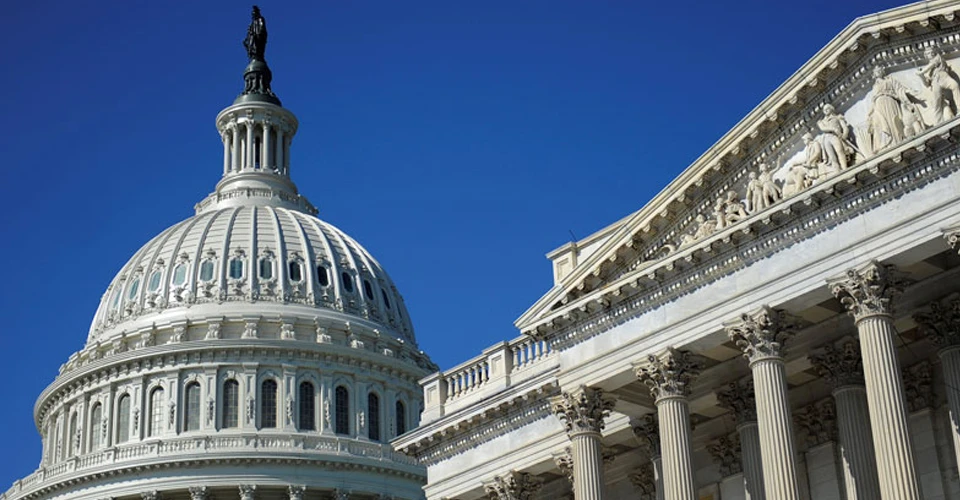
Photo: Reuters
In November, there are 50 different elections because we have 50 state governments. Each state has a number of votes determined by the number of congressional senators. Alaska is a good example because it has three electoral votes in the electoral college. Each state automatically has two senators, and Alaska has a small population, so they only have one congressman. So, adding up all the states, the total should be 270 votes. This is done for political strategies. They know their cartography, they know how many votes are coming in.
In particular, Democrats in New York and California always win because they are called “blue” or “deep blue” states. At the same time, Alabama, for example, will vote for a Republican no matter what. So, the number of votes in Alabama is taken and given to the Republicans automatically. If there is a big difference, you can immediately know on the eve of the election what the final result will be: “red” - yes, '“blue” - yes. And then there are states where voting results fluctuate. There are currently seven such states that may lean toward the Democrats or Republicans.
That's how arithmetic works. If someone gets as many as 300 votes, then it's clear that they will win, because 270 is the winning threshold. But when the scales begin to move closer together, 269 to 268, you have to wait for the final count. This is a very important part of the Republican strategy. They are hiring a lot of lawyers to prepare lawsuits against the election results because they do not consider them final. This is just a certain stage in the process of announcing the results. It is very important for the Democrats to defeat Trump, say, by a good margin, so that all those disputes in court are not successful or have less chance of success.
At eight in the evening, polling stations close in most states. If there is a queue, they are served anyway and their votes are also counted. There are also absentee ballots - when people have moved because of work or military service, or are abroad. These ballots can sometimes be counted before the election, but most often states wait until the polls officially close and only then do they open these envelopes and count these ballots. It takes more time. These procedural differences are important. You need to have some kind of specially elected clerk or certified specialists from other states. Questions arise because people think that someone is trying to cheat them during the election. So during this process, you need to be vigilant, to make sure that there is no fraud.
According to various polls this year, it will be a very close result. If it turns out that Trump loses by a lot, he will say that it is strange, because according to the polls, the victory was so close, and here is a big gap. There are reports that Republicans will secretly vote against Trump. They can't openly admit it, but when people are alone with a ballot in a booth, they can do it. Republicans are trying to encourage people to vote from home because women are very suspicious of Republicans, and men are suspicious of women as voters. If a woman goes to the polls, she will vote for Trump or she will not vote and lie. You can sit down at the dinner table, and everyone will say who they’re going to vote for, but they'll keep their fingers crossed behind their backs, ultimately voting differently.
Trump is spreading distrust of early voting. People no longer trust the electoral process, and it is very difficult to persuade them to vote. Citizens do not believe in fair and just elections. Trump makes people feel like they need to vote, but on the other hand, he discourages people from all American institutions because of the distrust he sows.
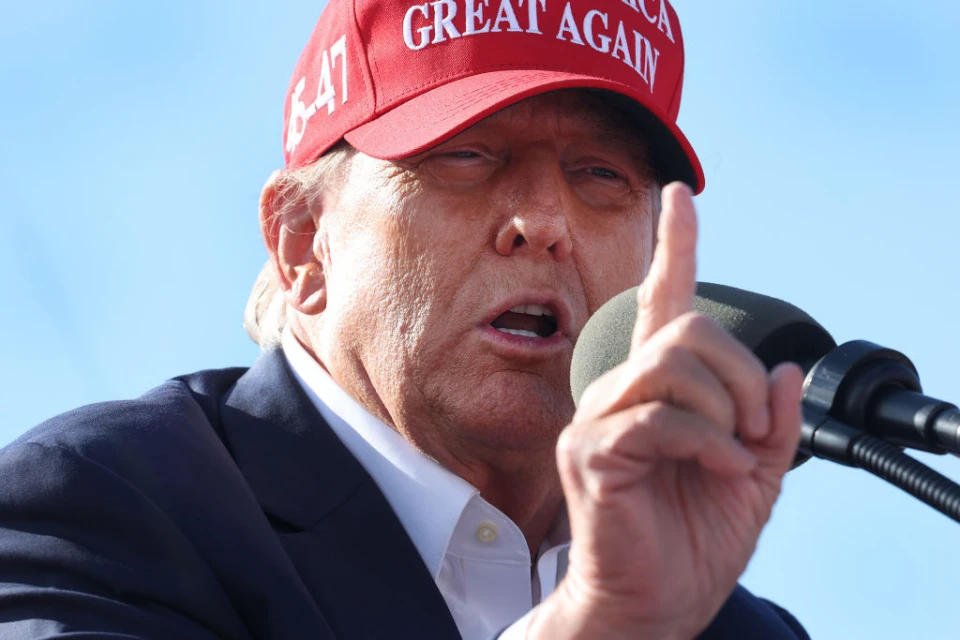
Photo: Getty Images
Does everyone in the United States like such a complicated electoral system? Is there any talk of moving election day to a weekend, for example, and simplifying the process?
You're absolutely right—many people, especially Democrats, are increasingly frustrated with the electoral college system. It can feel undemocratic when a candidate wins the popular vote by a significant margin but loses the presidency because of the electoral college, which gives each state electoral weight based on its number of congressional representatives. This system allows for the possibility of someone unpopular or less favored by the majority to be elected president, which seems to contradict the principle of democracy. J.D. Vance, a vice presidential candidate aligned with Trump, has expressed support for abolishing the electoral college. It’s possible he’s also speaking for Kamala Harris, as the desire to move away from the electoral college is a more common stance among Democrats. Meanwhile, Trump’s response—acknowledging that Vance speaks his mind while implying he has his own views—adds another layer of complexity and distrust to the situation.
James Timothy Walls, the vice-presidential candidate alongside Harris, voices the concerns of those who support the current system in the U.S. He argues that if the rules are changed to eliminate the Electoral College, the presidency would be decided by candidates appealing mainly to large urban centers where Democrats hold a majority. Cities like New York, Los Angeles, Houston, and Chicago would become the focus, leaving smaller, rural states neglected. Critics often refer to these rural areas as "flyover states" because candidates tend to overlook them during campaigns.
At the same time, it is definitely an outdated system, and it will have to be changed at some point. I hope that there will be some kind of check and balance, and this will save us from the Trumps of the future, because such people cannot be presidents, and they must be stopped by a counterweight. In 2016, the electoral college made it possible to elect Trump to the presidency and showed that this system will have to be abolished someday because it is not fair.
Do you have any sociological data on who is currently leading this election campaign?
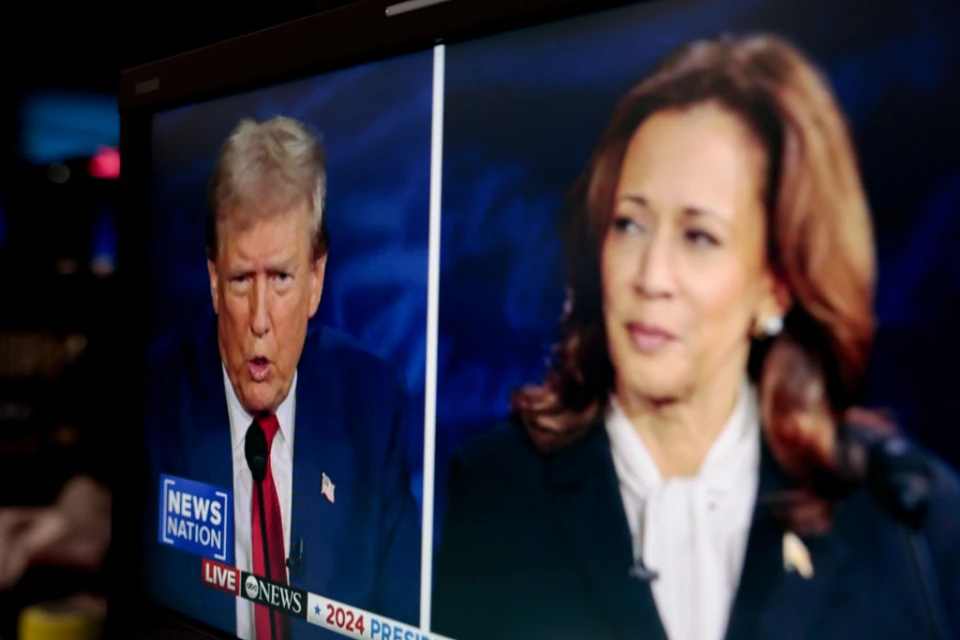
Photo: Getty Images
If we look at the latest polls, the situation appears concerning for the Democrats. Videos of Kamala Harris and Tim Walls show an atmosphere of joy and excitement, with people dancing in support of their candidates. Many believe Harris is capable, especially since Joe Biden, while a confident president, struggled more with communication compared to her.
Harris's candidacy came as a pleasant surprise to many, particularly because she avoided the common pitfalls of the American political system, which is hard to navigate without missteps, especially on the national stage. However, her experience as both a senator and vice president has given her a clear advantage.
Seven key swing states, including Pennsylvania, Michigan, and Wisconsin, form the crucial "blue wall." These states, especially the three around the Great Lakes, are pivotal in the electoral map. Polls show only a 1% difference between Donald Trump and Kamala Harris in these areas, which is unsettling.
But this is exactly what's needed—if people aren't told that something is bad for their health, they won’t consider dieting. Similarly, we have a threat to our democracy, and we need people to go out and vote. Donald Trump excels at mobilizing voters.
Interestingly, in these seven swing states that teeter between Republicans and Democrats, you have figures like Mr. and Mrs. Walls, Kamala Harris, and Douglas Emhoff—all couples who live in these areas. If you live in Wisconsin, for example, you might even see them.
As for the opinion polls, it’s hard to interpret. Trump remains popular, just as he has been, and that’s a well-established fact. We love to analyze these polls, eager to guess what people are thinking and how they’ll vote. Yet, trust in polling organizations is low. Today, everyone has a phone, but it’s unclear whether surveys are reaching a broad audience or just a few individuals.
In particular, Kamala Harris said that the results of such polls should not be trusted. Democrats are very nervous about them and believe that something else should be happening. Republicans, on the other hand, have very high hopes for these polls. They are encouraged by these numbers.
In your opinion, will the president who wins the U.S. election take Ukraine as seriously as it is taken now?
Historically, in the U.S., when only a few weeks remain before an election, foreign policy discussions fade because voters generally don’t prioritize it. If they haven’t decided who to vote for by then, their focus shifts to more immediate concerns—food prices, gas costs, and local issues. Those who care about Ukraine likely already know who they'll vote for.
It's important for people outside the U.S. to understand this dynamic. In the U.S., there’s a clear perception: if you support Donald Trump, you're likely suspicious of Ukraine. Many Trump supporters view Ukraine as a threat to him and are wary of its intentions, influenced by long-standing Republican narratives about corruption in Ukraine. This mistrust has been a talking point for years. Despite Trump's pre-election rhetoric, he will have to justify his stance and maintain his promise not to support Ukraine. Meanwhile, Kamala Harris has clearly stated that she will continue to back Ukraine.
Joe Biden and his administration, as Democrats, have forged a close relationship with Israel, raising several questions about this alignment. However, they seem less hesitant when it comes to Ukraine. Republicans are being asked whether they truly believe Ukraine's situation is as dire as some portray it, especially since Trump has been vague in his discussions on this matter. He has merely stated that a Ukrainian victory in the war with Russia aligns with the national interest of the United States and the broader world. Yet, his responses remain ambiguous and unclear to many Americans. It's uncertain whether people prefer to watch the news and deceive themselves, but it's evident that Trump isn't necessarily a positive influence for Ukraine. Ultimately, Donald Trump prioritizes his own interests above all else.
When Mike Pompeo visited Ukraine, he indicated that discussing democratic values with Trump is futile since he doesn't grasp their significance. Instead, conversations should focus on money and various deals. It’s important to recognize that Trump has held grievances against Ukraine from the start, coupled with reservations, if not outright prejudices. Conversely, Russian dictator Vladimir Putin excels at persuading Trump that there are conspiracies against him. Trump's paranoia lends more weight to his claims.
Thus, Trump's intentions are quite apparent to Americans. What he could do if re-elected to the White House is increasingly clear. John Bolton, who served as Trump's national security adviser, stated that if Trump were to win the election again, U.S. assistance to Ukraine would cease.
Is there any discussion in the United States, particularly within the president's administration, about foreign interference in the election campaign, and possibly even in the elections themselves?
I believe interference is a real issue and a pressing concern that draws our attention as voters. It feels like we are acting as jurors in Trump’s trial, weighing all this information and deciding whether he is guilty or not - essentially, whether we support him for president or not. It’s almost turning into a referendum on trust in Donald Trump.
Different countries, and even various regions within the U.S., tackle this issue in distinct ways. When Russia interferes, it employs a range of intelligence tactics, impersonates others, and pays influential figures—often referred to as influencers—millions of dollars. Recently, a significant scandal erupted involving bloggers who promoted Russian narratives. It's challenging to catch these individuals in the act, as their audiences often perceive this content as aligning with their own expectations and beliefs. We've been grappling with this Russian issue since before 2016, and it's our responsibility as voters to remain vigilant.
In contrast, Iran is deeply concerned about Donald Trump's potential re-election and even seeks to eliminate him. While Trump claims that North Koreans are plotting against him, many believe that it's actually Iranians who are scheming an assassination. This interference is real, and it carries implications that we must confront.
Another level of Russian interference is through Russian-language media, which radicalizes its listeners, readers, and viewers worldwide, whether they live in Russia, Ukraine, or the U.S. Marjorie Taylor Greene is one of those radicalizing through media outlets supported by Russia and Iran. She also makes extreme statements, which are part of this process. It seems the Republican Party has done a lot on its side regarding this election campaign, and Russia supports Trump. If you like him, you probably don’t hate Putin either. Many people desire a strong, promising dictator. At the same time, there is also resistance to Russian influence, which is noticeable.
We understand and are aware of the risks, but we hope the election results won't be too close, and the margin of victory won’t be too narrow. But so far, that's exactly what's happening, judging by the public opinion polls.
Which of the U.S. presidential candidates, Kamala Harris or Donald Trump, might fear Putin more?
This is a very important question. We know that Kamala Harris is a former prosecutor, while Donald Trump is a defendant. Putin, in turn, is also a defendant, being a client of the Hague court. There’s no reaching an agreement with a prosecutor. Harris comes from a law enforcement background, so in the presidential seat, she would likely act in the same way.
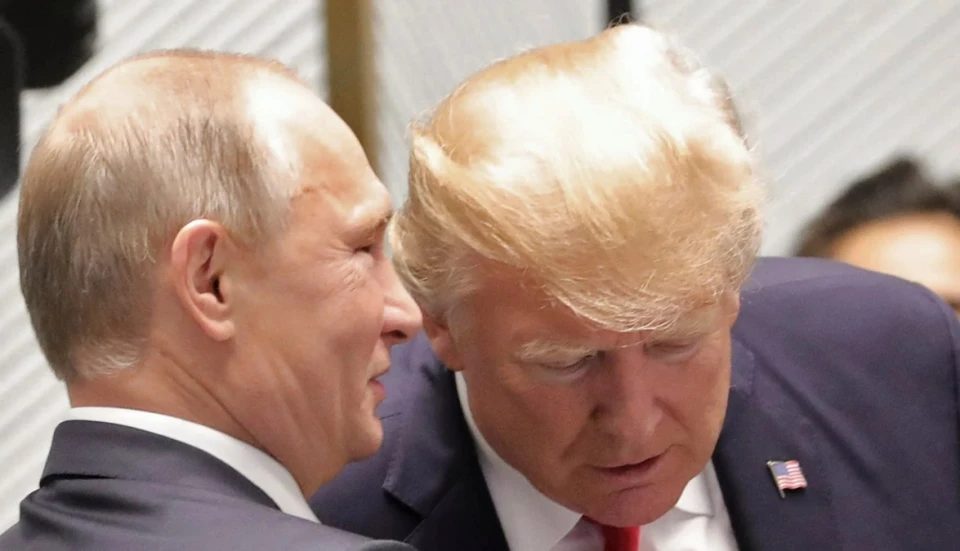
Photo: Open sources
Trump is using Putin. It seems that this Russian nuclear threat is just a way to scare people. If we want to take it seriously, fine, but it doesn’t mean we should surrender or agree to everything the Russian dictator demands. If Putin wants Ukraine, should we give it up to avoid nuclear war?
Yet, this is exactly what Trump offers to Republicans: the nuclear threat is very real, and we should be afraid and make peace with Putin. I can’t say for sure if the threat is real or not. What I do know is that Kamala Harris and the Democrats are calmly standing up to Putin, while Trump, in a way, submits to him.
Who should Putin fear more?
I believe he should fear Kamala Harris. We know that he struggles in relationships with women. Similarly, Trump also has a fear of women. There is a certain continuity in politics: if Trump is elected, there will be chaos - a favorable and nurturing environment for Republicans. If Harris is elected, there will be support for Ukraine for 4 or 8 years, and we will be discussing how the U.S. needs to provide even more assistance. Those would be very good conversations because I don’t want to keep repeating that helping Ukraine is in our national interest. We understand that as a given. Meanwhile, Trump and his supporters don’t realize that supporting Ukraine is the foremost national interest of the United States.
So, we hope there will be some consistency for 4-8 years, which will impact Putin. We need to push him towards negotiations that consider the interests of Ukrainians.
Could there be unrest in the U.S. similar to what happened in January 2021 if Harris wins?
Unfortunately, this is a very realistic possibility; it could happen. From ordinary voters to politicians and law enforcement, everyone takes this threat very seriously. People understand that Donald Trump is running a campaign that is unlikely to win—he can't expect to attract votes. He knows he can't win, so he wants to cause chaos; he is an arsonist. If Trump loses, he could set fire to the collective home of all Americans.
There are armed individuals even among Democrats, so this wouldn't be a one-sided situation. But it would be even more dangerous. It is crucial for Donald Trump to lose convincingly to eliminate any reasons for protests in his favor.
- News












































